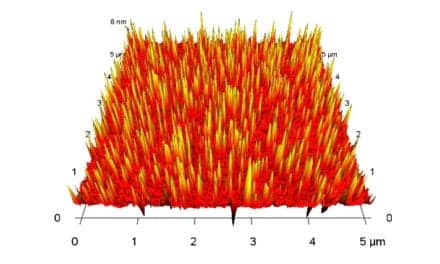Natera, Inc., a provider of care through genetic and cell-free DNA (cfDNA) testing, has announced the validation and clinical availability of its Prospera Heart transplant assessment test for heart transplant recipients. This launch represents the first major application of the Prospera technology beyond kidney transplant and leverages Natera’s expertise from performing greater than 3 million cfDNA tests worldwide.
Prospera Heart delivers performance with an area under the curve (AUC) of 0.844 from a single non-invasive test1, eliminating the need to combine two tests for each patient and thus reducing the cost to the health care system. Prospera Heart is easy to use – it does not require spinning down or shipment on dry ice.
Natera validated the Prospera test in partnership with the University of Utah and University of California, San Diego. This study of >350 biopsy-matched samples is currently in submission to a major scientific journal.
“We have shown a very strong correlation between acute rejection and the Prospera Heart test in heart transplant recipients and are anticipating that the data will be published very soon,” says corresponding author, Josef Stehlik, MD, MPH, the Christi T Smith professor of medicine at the University of Utah School of Medicine and medical director of the heart transplant program and co-chief of the advanced heart failure program at the University of Utah Hospital.
In addition to the multi-site validation study, Natera also announced that Prospera Heart will be the donor-derived cfDNA (dd-cfDNA) test used in the landmark NIH-funded DTRT study – which is now fully enrolled. DTRT is a prospective, multi-center study that includes over 2,000 dd-cfDNA timepoints from roughly 175 heart transplant recipients who were followed for up to two years post-transplant. Natera expects the study to report results in early 2022.
Natera is also sponsoring the DETECT randomized controlled trial, led by Josef Stehlik, MD, MPH and Palak Shah, MD, MS, heart failure/transplant specialist at the Inova Heart and Vascular Institute and director of the Inova Cardiovascular Genomics Center, which will prospectively enroll 600 patients and monitor them for one year. The goal of the study is to demonstrate that rejection surveillance of heart transplant recipients with Prospera Heart is non-inferior to rejection surveillance with endomyocardial biopsy (EMB) histology in the first year post-transplant. If successful, DETECT may allow physicians to replace surveillance biopsy, the prevailing form of monitoring used today, with dd-cfDNA testing, which would significantly expand the number of patients who could be helped with the Prospera Heart technology.
“We’re excited to validate and launch Prospera Heart to help the many patients who’ve previously had a heart transplant. Our high accuracy, strong validation results and simple logistics will make Prospera Heart very competitive. By achieving an AUC of 0.844 from a single test, we avoid the additional cost and complexity of combining two tests on the same patient,” says Bernie Tobin, general manager of Natera’s organ health division. “We plan to compete hard in the current non-invasive heart transplant assessment market, and potentially expand and improve on the current standard of care through the DETECT randomized controlled trial.”
About the Prospera Test
The Prospera test leverages Natera’s core single-nucleotide (SNP)-based massively multiplexed PCR (mmPCR) technology to identify allograft rejection non-invasively and with high precision and accuracy, without the need for prior donor or recipient genotyping. The test works by measuring the fraction of donor-derived cell-free DNA (dd-cfDNA) in the recipient’s blood. It may be used by physicians considering the diagnosis of active rejection, helping to rule in or out this condition when evaluating the need for diagnostic testing or the results of an invasive biopsy. The Prospera test has been clinically and analytically validated for performance regardless of donor relatedness, rejection type, and clinical presentation. It has been developed and its performance characteristics determined by Natera, the CLIA-certified laboratory performing the test. The test has not been cleared or approved by the US Food and Drug Administration (FDA). CAP accredited, ISO 13485 certified, and CLIA certified.
Reference
- Natera clinical validation data. Manuscript on file.





